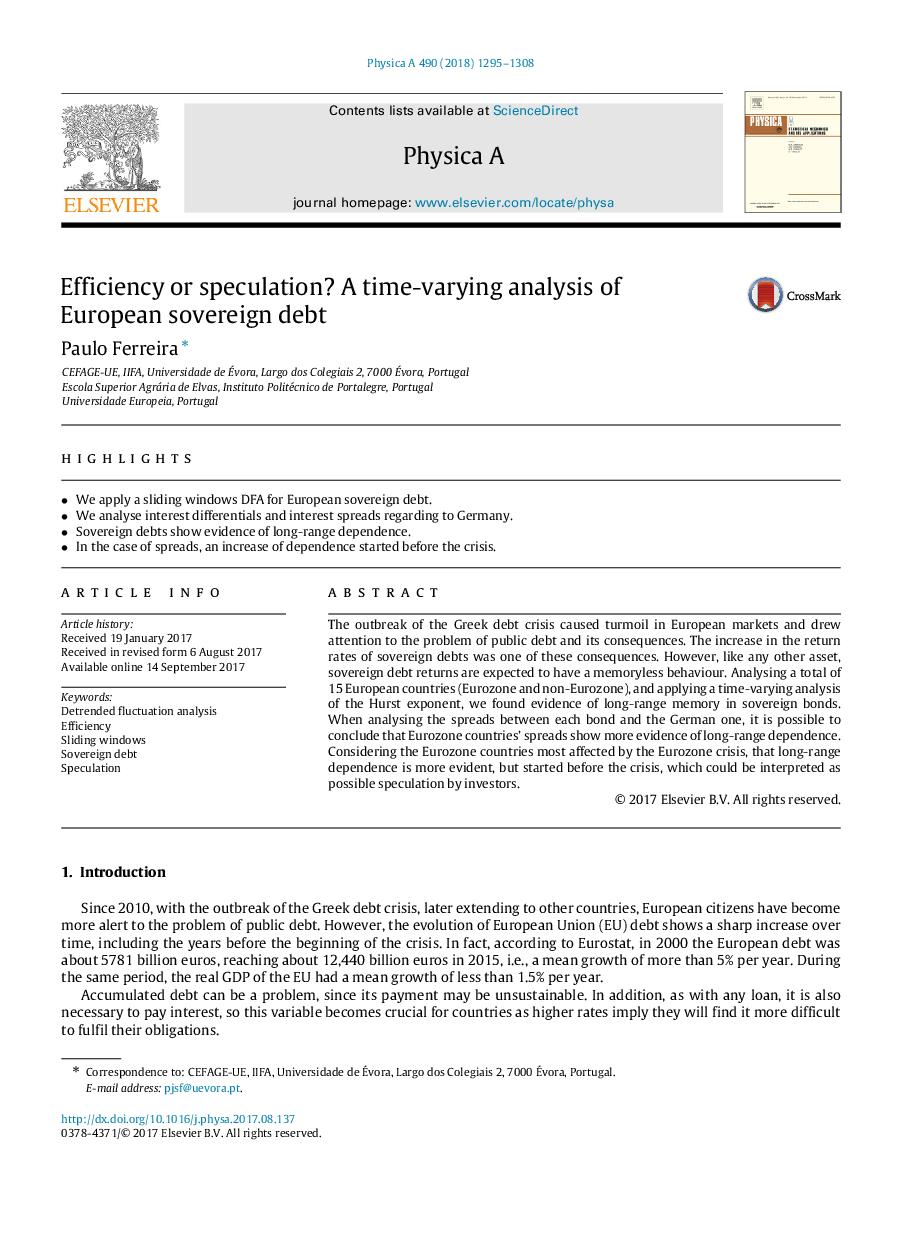| Article ID | Journal | Published Year | Pages | File Type |
|---|---|---|---|---|
| 5102471 | Physica A: Statistical Mechanics and its Applications | 2018 | 14 Pages |
Abstract
The outbreak of the Greek debt crisis caused turmoil in European markets and drew attention to the problem of public debt and its consequences. The increase in the return rates of sovereign debts was one of these consequences. However, like any other asset, sovereign debt returns are expected to have a memoryless behaviour. Analysing a total of 15 European countries (Eurozone and non-Eurozone), and applying a time-varying analysis of the Hurst exponent, we found evidence of long-range memory in sovereign bonds. When analysing the spreads between each bond and the German one, it is possible to conclude that Eurozone countries' spreads show more evidence of long-range dependence. Considering the Eurozone countries most affected by the Eurozone crisis, that long-range dependence is more evident, but started before the crisis, which could be interpreted as possible speculation by investors.
Related Topics
Physical Sciences and Engineering
Mathematics
Mathematical Physics
Authors
Paulo Ferreira,
